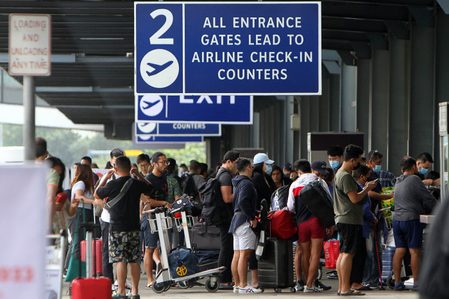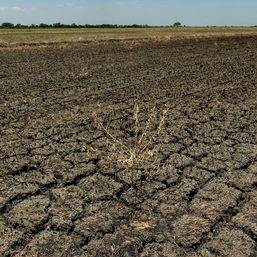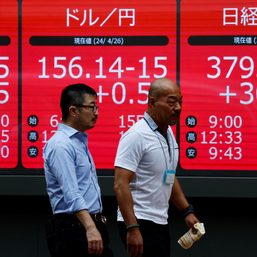SUMMARY
This is AI generated summarization, which may have errors. For context, always refer to the full article.
![[Vantage Point] The cost of the Israel-Hamas war](https://www.rappler.com/tachyon/2023/11/israel-hamas-war-cost-nov-10-2023.jpg)
One of the most immediate and apparent effects of the Israel-Hamas war on the global economy is its influence on oil prices. The Middle East is a vital region for oil production and export. Any instability in the area, such as the ongoing conflict, leads to concerns about the disruption of oil supplies.
As a result, oil prices tend to rise, causing uncertainty in energy markets and impacting economies worldwide.
Oil has been particularly volatile, amid concerns that an escalation could restrict supply from the energy-rich region.
Any conflict in the Middle East tends to result in oil price upticks. Remember the OPEC oil embargo of 1973-1974, the Iranian revolution of 1978-1979, the Iran-Iraq War initiated in 1980, and the first Persian Gulf War in 1990-1991?
Since the region accounts for nearly a third of global oil supply, instability there gives rise to concerns about interruptions to global oil supply which leads to market uncertainty, reflected in the risk premium in oil markets.
This risk premium refers to the price paid for oil traded ahead of time in the futures markets versus the real-time price of oil. It reflects the profits that speculators hope to earn from buying and selling oil during a time of conflict, as well as the hedging needs of businesses that produce and consume oil and their concerns about supply and demand.
3 scenarios
The World Bank and Bloomberg Economics have simulated three scenarios for the global oil supply in the event of a small, medium, or large disruption.
From my understanding of their analyses, the effects should be limited if the conflict doesn’t widen from a “small disruption” scenario – as oil prices are expected to decline from current levels to an average of about $85 to $95 a barrel by next year.
But during a “medium disruption” – equivalent to the disruptions experienced during the Iraq war – the global oil supply of about 100 million barrels a day would decline by 3 million to 5 million barrels per day, driving oil prices up possibly by 35%.
In a “large disruption” scenario – comparable to the Arab oil embargo of 1973 – the global oil supply would shrink by 6 million to 8 million barrels per day and prices could go up by 56% to 75%, or to $140 to $157 a barrel.
If a “large disruption” or a more severe scenario materializes, it would push up food price inflation that has already been elevated in many developing countries as a result of Russia’s February 2022 invasion of Ukraine.
An escalation of the latest conflict would intensify food insecurity, not only within the region but also across the world.
Competing nationalisms
How did we come to this?
“From the river to the sea, Palestine will be free”; “Never again!”
These powerful slogans mirror the sentiments of the Palestinian people who yearn for independence and a Jewish state under siege from its neighboring nations since its founding, and serve as the poster face of antisemitism that Israel has had to endure from right-wing extremists throughout its young existence.
This slogan was what decided the fate of Representative Rashida Tlaib, D-Mich., who the US House of Representatives censured – on a vote of 234 to 188 – regarding the October 7, 2023, Hamas attack on Israel for calling for the destruction of the Jewish state. Tlaib, the only Palestinian-American in Congress, has condemned Israel for the “murder of the Palestinian people including babies.”
She defended the mass protests against the “Israeli occupation of Gaza” which have gained momentum worldwide, attracting tens of thousands of protesters. She says that the chant “from the river to the sea….” recited in cadence by the protesters around the world, is aspirational and was never meant to foment destruction.
But is Israel really at war with Palestine? The Palestinian authority has long yielded full control of its people to Hamas. Hamas, which the US and its Western allies have labeled as a terrorist group, has forcefully supplanted the will of the Palestinian people to carve their own destiny. Hamas’ single-minded objective has always been the destruction of the State of Israel.
The Israel-Hamas war has its origins in the late 19th and early 20th centuries, involving competing nationalisms, historical claims to the same territory, and the aftermath of WWII. The establishment of the State of Israel about 75 years has fueled never-ending hostilities between Israel and its Arab neighbors.
Key issues include territorial disputes, the status of Jerusalem, the rights of Palestinian refugees, and broader geopolitical and religious factors. There have been several wars, uprisings, and peace efforts over the years, with no comprehensive resolution to date. Efforts to achieve a lasting and just resolution continue through wobbly diplomatic means, but the complexity of the issues involved makes the undertaking a gargantuan and formidable one.
Disruption of supply chains
This is unfortunate, as the global economy is interconnected through complex supply chains that extend across the world.
The current war disrupts these supply chains, particularly in industries reliant on the Middle East for resources or transit routes. Sudden disruptions in the movement of goods, such as through the Suez Canal, can lead to delays and increased costs, affecting both producers and consumers globally.
Geopolitical instability caused by the conflict triggers volatility in financial markets. Investors and financial institutions closely monitor the situation, and any escalation can lead to sharp fluctuations in stock markets and currencies. These fluctuations can impact the wealth of investors, pensions, and overall market stability.
Internal and inter-state conflicts often significantly affect stock market indices, exchange rates, and commodity prices. Sometimes, even in the lead-up to hostilities, prices already shoot up. Even more complicated to calculate and harder to predict are the long-term effects of such dramatic and shattering events on investor behavior.
Impact on tourism and travel
The conflict’s impact on the global economy extends to the tourism and travel industry. Countries in the Middle East and North Africa (MENA) region are popular tourist destinations, and the instability caused by the conflict can lead to a decline in tourism.
Additionally, airlines may reroute or cancel flights due to safety concerns, causing financial losses for the travel industry.
The Israel-Hamas conflict also places a strain on global humanitarian and aid organizations. The conflict often results in a significant number of displaced people, increasing the need for international aid. Donor countries must allocate resources and funds to address the humanitarian crisis, diverting them from other global issues and development projects.
Multinational corporations and businesses with operations in the Middle East are exposed to increased risks during periods of conflict. The threat to investments and business continuity can lead to reduced economic growth and stability, as companies reconsider their presence in the region.
The Israel-Hamas war is multifaceted with far-reaching consequences for the global economy and trade. Its impact extends beyond the immediate region, affecting energy markets, supply chains, financial markets, tourism, humanitarian efforts, diplomatic relations, and business operations.
It is a huge challenge for the international community to seek a peaceful resolution to this long-standing conflict to mitigate the adverse economic effects it has on the world.
A stable Middle East is not only essential for the well-being of the region’s inhabitants, but also for the prosperity of the global economy. – Rappler.com
Add a comment
How does this make you feel?
![[WATCH] In the Public Square with John Nery: Palestine, one month after](https://i.ytimg.com/vi/poQGEKQu4xs/hqdefault.jpg)


![[OPINION] A rebellion long overdue](https://www.rappler.com/tachyon/2024/06/mass-uprising-matrix-june-4-2024.jpg?resize=257%2C257&crop_strategy=attention)








There are no comments yet. Add your comment to start the conversation.